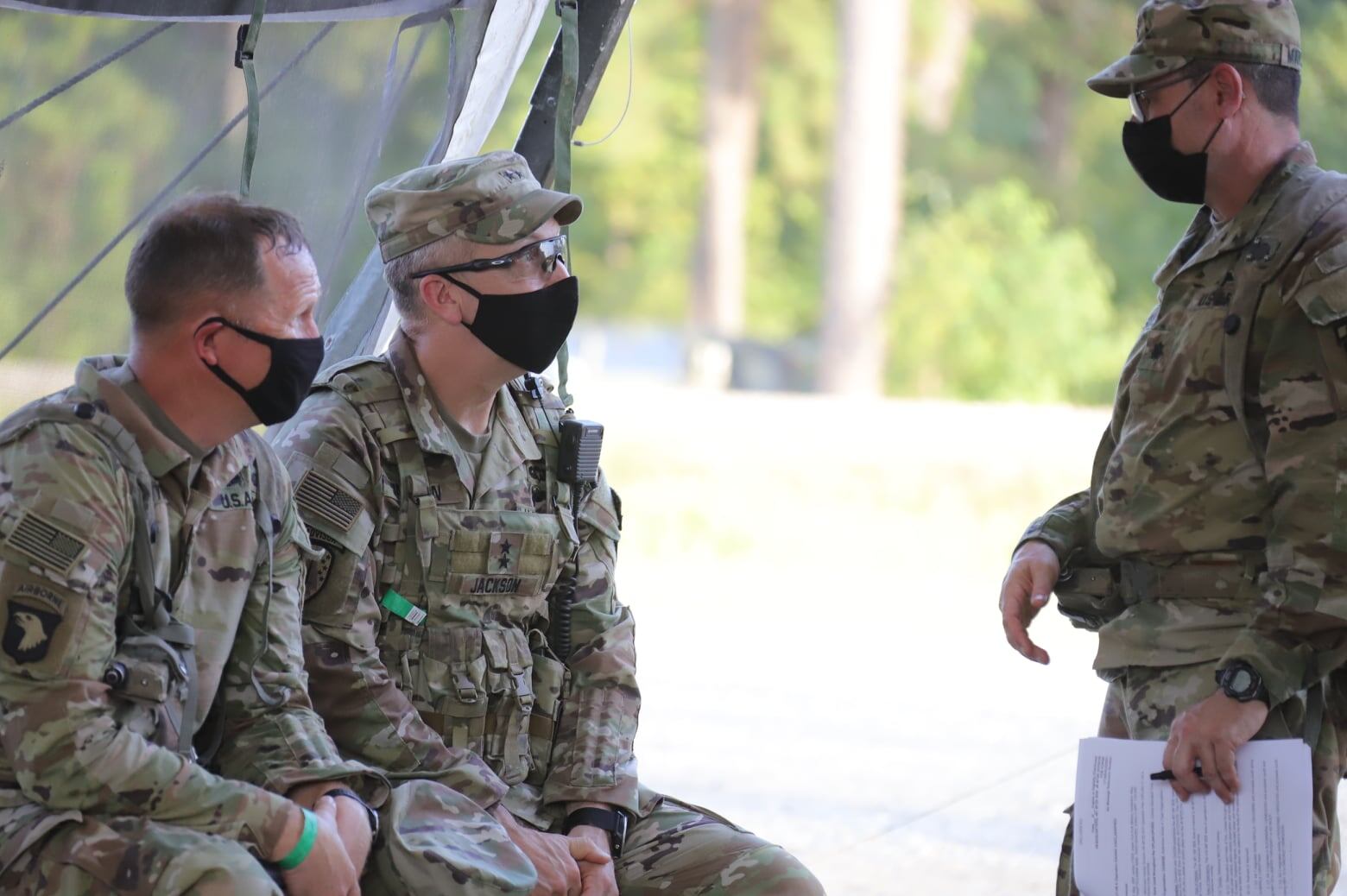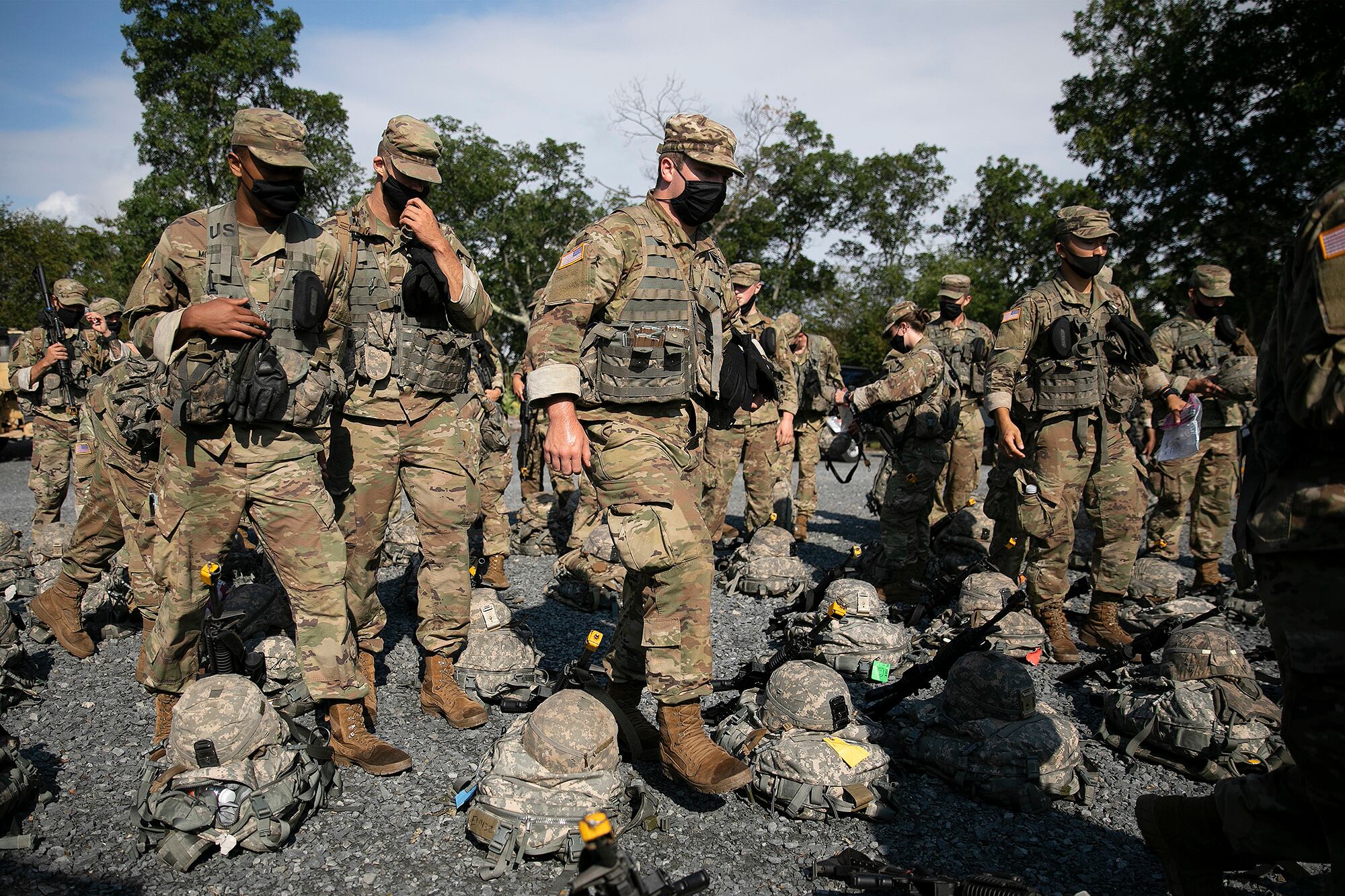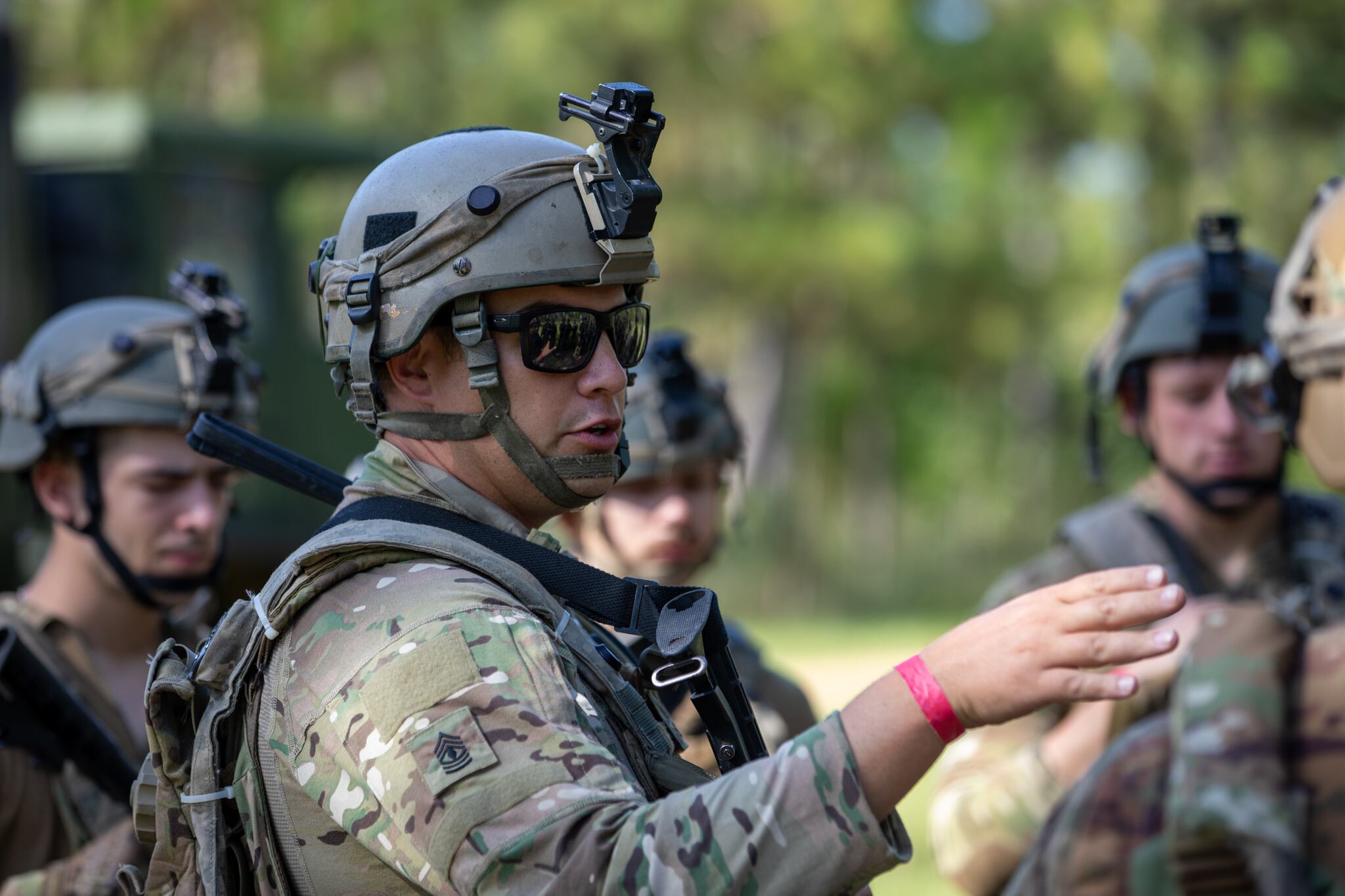Troops involved in the 54th Security Force Assistance Brigade’s current training rotation at the Joint Readiness Training Center at Fort Polk, Louisiana, have a new uniform item — a red or green wristband denoting their COVID-19 vaccination status.
Army officials described the wristbands as an effort to expedite in-field contact tracing of positive COVID-19 cases.
“During rotation 21-09 the Soldiers of 54th SFAB, supporting units and Observer Coach Trainers, as well as anyone supporting the rotation, will wear wristbands denoting COVID vaccination status,” said JRTC spokesperson Shelby Waryas in a statement emailed to Army Times. “This is to assist the OCTs to be more precise in measuring risk in contact tracing and therefore keep more people in the training scenario.”
Photos of troops wearing the wristbands — including Security Force Assistance Command head Maj. Gen. Scott Jackson — have started appearing on JRTC social media channels as well.

“These protective postures enable us to maintain training and Army readiness, all while making sure the training formation, Soldiers and Families of Fort Polk stay safe,” said Brig. Gen. David Doyle, commander of JRTC and Fort Polk, in a statement emailed to Army Times.
COVID-19 outbreaks at JRTC can stop training if they get too serious, Waryas said. That is why Doyle opted to require the wristbands. She described the order as “directly related to tactical safety.”
But a soldier assigned to JRTC, who spoke with Army Times on condition of anonymity due to fear of retaliation, said the wristbands aren’t helping.
“The only thing that is happening with these armbands is that we’re being threatened with punitive actions if we lose our paper bands,” the soldier said. “We’ve lost many due to the fact that we are conducting platoon training from 6 a.m. to 10 p.m.”
The same soldier expressed concern that leaders who aren’t vaccinated “are being scrutinized” by their superiors.
An 82nd Airborne Division brigade ignited controversy in February when an anonymous letter circulated on social media accused leadership of not taking the pandemic seriously during their JRTC rotation. And an Arkansas Army National Guard brigade experienced a significant outbreak that sickened at least 115 troops, according to Military.com, requiring at least nine quarantine barracks to house infected or exposed soldiers.
RELATED

Waryas emphasized that the wristbands were “just another safety measure” the training center has taken since restarting training in June 2020. The visual markers are the latest component of a mitigating regime that includes regular testing, daily screenings and restricted travel between the training area and the installation’s North Fort commercial and residential area.

She also pointed to Defense Department policy that authorized leaders at even the lowest level to ask about a soldier’s vaccination status.
“Wristbands showing fully vaccinated status or less than vaccinated status fall within this authorization,” Waryas said, adding that HIPAA restrictions only applies to entities such as healthcare providers.
And in a humid, sweaty extended training environment such as JRTC, “carrying paper proof of vaccination is not feasible,” she noted.
The implementation of wristbands denoting COVID-19 vaccination status last week only narrowly came before Monday’s news that DoD will mandate the vaccine for U.S. troops.
The Food and Drug Administration formally approved the Pfizer/BioNTech vaccine on Monday, leading Pentagon officials to immediately announce that the shot would become mandatory for the entire force.
“We’re gonna move forward making that vaccine mandatory,” said Pentagon spokesperson John Kirby on Monday morning.
The move comes on the heels of the deadliest week of the COVID-19 pandemic for the military, with five reported deaths. The deceased included three troops under the age of 31, including a 27-year-old Marine.
Editor’s note: This story has been updated with comment from a soldier who is participating in the 54th SFAB’s rotation at JRTC.
Davis Winkie covers the Army for Military Times. He studied history at Vanderbilt and UNC-Chapel Hill, and served five years in the Army Guard. His investigations earned the Society of Professional Journalists' 2023 Sunshine Award and consecutive Military Reporters and Editors honors, among others. Davis was also a 2022 Livingston Awards finalist.




